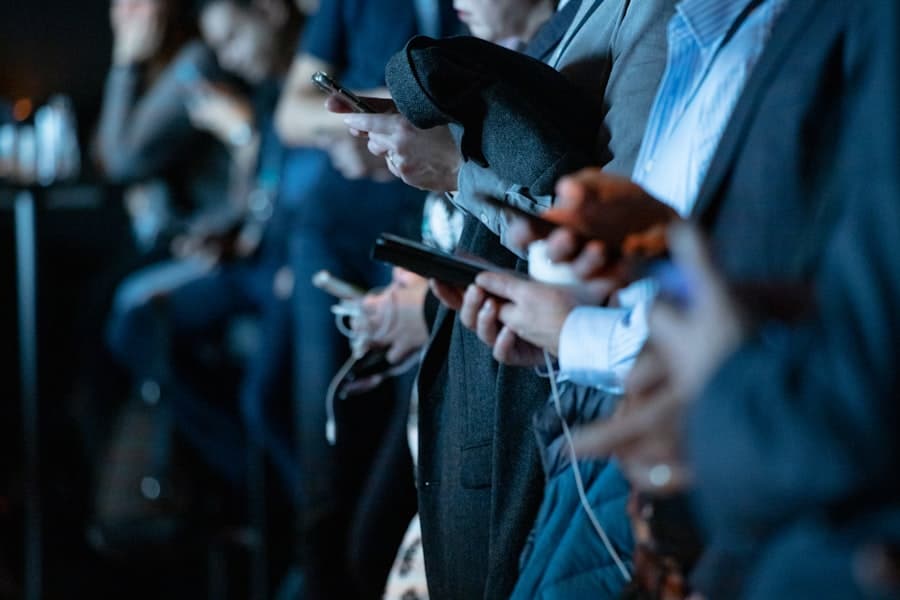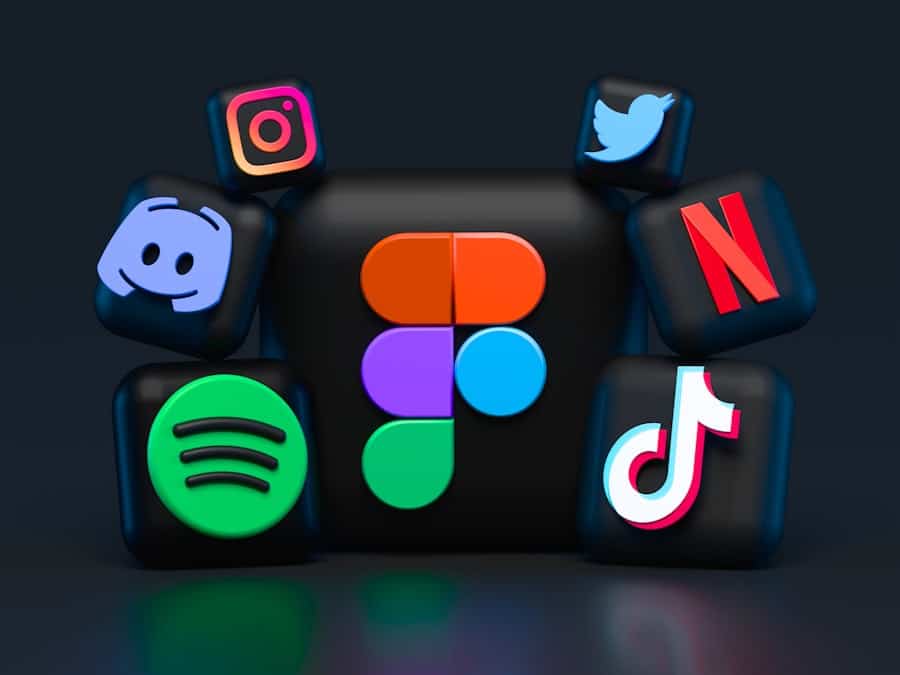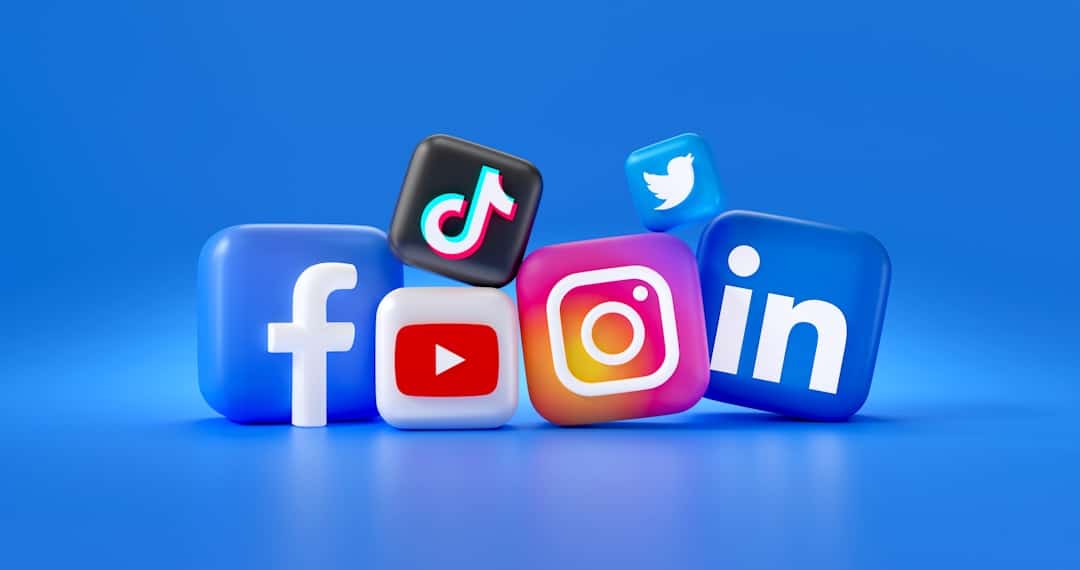The intersection of social media and gaming culture has transformed the landscape of how players interact, share experiences, and build communities. In the past, gaming was often a solitary pursuit, confined to the living room or a friend’s house. However, the advent of social media platforms has revolutionized this dynamic, allowing gamers to connect with one another across vast distances.
This shift has not only enhanced the social aspect of gaming but has also given rise to new forms of content creation and community engagement. As gaming continues to evolve, so too does the role of social media within it.
The integration of social media into gaming culture has led to the emergence of new trends, such as live streaming and influencer marketing, which have become integral to how games are marketed and consumed. Gamers are no longer just passive consumers; they are active participants in a larger conversation that shapes the industry. This article will explore the multifaceted relationship between social media and gaming culture, examining its impact on communities, the rise of influencers, marketing strategies for developers, the role in events and tournaments, ethical considerations, and future trends.
Key Takeaways
- Social media has become an integral part of gaming culture, shaping the way gamers interact, share content, and build communities.
- The impact of social media on gaming communities is significant, providing a platform for gamers to connect, share experiences, and form friendships.
- Influencers and streamers have risen to stardom through social media, shaping gaming trends and influencing the industry.
- Game developers utilize social media platforms as a powerful marketing tool to reach and engage with their target audience.
- Social media plays a crucial role in promoting and broadcasting gaming events and tournaments, reaching a global audience and increasing participation.
The Impact of Social Media on Gaming Communities
Social media has fundamentally altered the way gaming communities form and operate. In the past, gamers often relied on forums or local meetups to connect with others who shared their interests. Today, social media platforms provide a more immediate and accessible means of communication.
Gamers can join groups dedicated to specific titles or genres, participate in discussions, and share content such as gameplay clips or fan art with just a few clicks. This accessibility fosters a sense of belonging and camaraderie among players, regardless of geographical barriers. Moreover, social media has enabled the rapid dissemination of information within gaming communities.
News about game updates, patches, or upcoming releases can spread like wildfire through platforms like Twitter or Reddit. This immediacy allows players to stay informed and engaged with their favorite games in real-time. Additionally, social media serves as a platform for grassroots movements within gaming communities.
The ability to mobilize quickly and effectively has empowered gamers to influence the industry in ways that were previously unimaginable.
Influencers and Streamers: The Rise of Social Media Stars in Gaming

The rise of influencers and streamers has been one of the most significant developments in the relationship between social media and gaming culture. Platforms like Twitch and YouTube have given birth to a new breed of content creators who not only play games but also entertain and engage their audiences through live streaming and video content. These influencers have become pivotal figures within the gaming community, often amassing large followings that rival traditional celebrities.
Their impact extends beyond mere entertainment; they shape trends, influence purchasing decisions, and even affect game development through their feedback and interactions with developers. Influencers often cultivate a personal brand that resonates with their audience, creating a sense of intimacy that traditional marketing cannot replicate. For example, streamers like Ninja or Pokimane have built loyal fanbases by sharing not only their gaming skills but also their personalities and lifestyles.
This connection fosters a community where fans feel invested in the influencer’s journey, leading to increased engagement and support. Furthermore, brands have recognized the potential of these influencers as marketing partners, leading to collaborations that can significantly boost a game’s visibility. The symbiotic relationship between influencers and game developers has created a new ecosystem where both parties benefit from increased exposure and engagement.
Social Media Platforms as a Marketing Tool for Game Developers
Game developers have increasingly turned to social media as a vital marketing tool to reach their target audiences effectively. Traditional advertising methods such as television commercials or print ads are often less effective in capturing the attention of today’s gamers, who are more likely to engage with content on social media platforms. Developers can leverage these platforms to create buzz around upcoming releases through teaser trailers, behind-the-scenes content, and interactive campaigns that encourage user participation.
One notable example is the marketing strategy employed by companies like Epic Games for their flagship title, Fortnite. The game’s developers utilized social media to create a sense of urgency and excitement around new seasons and events by sharing exclusive content and engaging directly with fans. This approach not only generated anticipation but also fostered a community that felt involved in the game’s evolution.
Additionally, social media allows developers to gather feedback from players in real-time, enabling them to make adjustments based on player preferences and concerns. This level of interaction was previously unattainable and has led to more responsive game development practices.
The Role of Social Media in Gaming Events and Tournaments
Gaming events and tournaments have also been significantly impacted by social media, which plays a crucial role in promoting these gatherings and enhancing the overall experience for participants and viewers alike. Major events like E3 or PAX rely heavily on social media for announcements, live coverage, and community engagement. Through platforms like Twitter or Instagram, organizers can share updates in real-time, allowing fans who cannot attend in person to stay connected with the event’s happenings.
Moreover, social media has transformed how tournaments are broadcasted and consumed. Live streaming platforms such as Twitch have become synonymous with esports events, providing fans with access to live gameplay, commentary, and analysis from experts in the field. This accessibility has contributed to the explosive growth of esports as a legitimate form of entertainment, attracting millions of viewers worldwide.
Social media also facilitates interaction between players and fans during these events, allowing for real-time discussions and reactions that enhance the overall viewing experience.
Social Media and Gaming Ethics: Addressing Toxicity and Harassment

While social media has brought many positive changes to gaming culture, it has also introduced challenges related to toxicity and harassment within online communities. The anonymity afforded by social media platforms can lead to negative behaviors such as trolling, cyberbullying, and harassment, which can create hostile environments for players. This issue is particularly pronounced in competitive gaming spaces where emotions run high, leading to instances of unsportsmanlike conduct that can tarnish the reputation of both players and games.
In response to these challenges, many gaming companies and social media platforms have begun implementing measures to combat toxicity. Initiatives such as reporting systems, community guidelines, and moderation tools aim to create safer spaces for players. Additionally, prominent figures within the gaming community have taken it upon themselves to advocate for positive behavior online.
Influencers often use their platforms to promote inclusivity and respect among gamers, encouraging their followers to engage in constructive dialogue rather than resorting to negativity. The ongoing conversation about ethics in gaming is crucial for fostering a healthier community that prioritizes respect and support over hostility.
The Future of Social Media in Gaming Culture
Looking ahead, the relationship between social media and gaming culture is poised for further evolution as technology continues to advance. Emerging trends such as virtual reality (VR) and augmented reality (AR) are likely to influence how gamers interact with each other online. As these technologies become more mainstream, social media platforms may adapt to incorporate immersive experiences that allow players to connect in new ways.
For instance, VR chat rooms could enable gamers to socialize in virtual environments while playing together or attending events. Additionally, the rise of decentralized platforms may reshape how gaming communities operate on social media. Blockchain technology could facilitate new forms of ownership and monetization for content creators while providing gamers with more control over their data and interactions online.
As these developments unfold, it will be essential for both gamers and developers to navigate this changing landscape thoughtfully.
The Evolving Relationship Between Social Media and Gaming
The relationship between social media and gaming culture is dynamic and multifaceted, reflecting broader societal changes in how we communicate and connect with one another. As both industries continue to evolve side by side, it is clear that social media will remain an integral part of the gaming experience for years to come. From fostering communities to shaping marketing strategies and addressing ethical concerns, the impact of social media on gaming culture is profound and far-reaching.
As we look toward the future, it is essential for all stakeholders—gamers, developers, influencers—to engage thoughtfully with these platforms to ensure that they contribute positively to the vibrant tapestry of gaming culture.
In the ever-evolving landscape of gaming culture, social media platforms have become pivotal in shaping how gamers interact, share experiences, and build communities. An interesting article that complements this discussion is The Best Apps for Facebook 2023, which explores the latest applications enhancing user engagement on Facebook. This piece provides insights into how these apps can be leveraged by gamers to connect with like-minded individuals, share gaming content, and participate in vibrant online communities, further highlighting the integral role of social media in the gaming world.
FAQs
What is the role of social media in gaming culture?
Social media plays a significant role in gaming culture by providing a platform for gamers to connect, share experiences, and engage in discussions about their favorite games. It also serves as a space for game developers and publishers to interact with their audience, share updates, and gather feedback.
How does social media impact the gaming community?
Social media has a profound impact on the gaming community by fostering a sense of community and belonging among gamers. It allows for the creation of online gaming communities, the sharing of gaming content, and the organization of gaming events and tournaments.
What are the benefits of social media in gaming culture?
The benefits of social media in gaming culture include the ability to connect with other gamers, share gaming experiences, discover new games, and stay updated on the latest gaming news and trends. It also provides a platform for gamers to showcase their skills and creativity through content creation.
How do game developers and publishers utilize social media in gaming culture?
Game developers and publishers utilize social media in gaming culture to promote their games, engage with the gaming community, gather feedback, and provide updates on game development. They also use social media to build hype and anticipation for upcoming game releases.
What are some popular social media platforms for gaming culture?
Popular social media platforms for gaming culture include Twitch, YouTube, Twitter, Discord, and Reddit. These platforms are widely used by gamers, game developers, and publishers to connect, share content, and engage in discussions about gaming.

